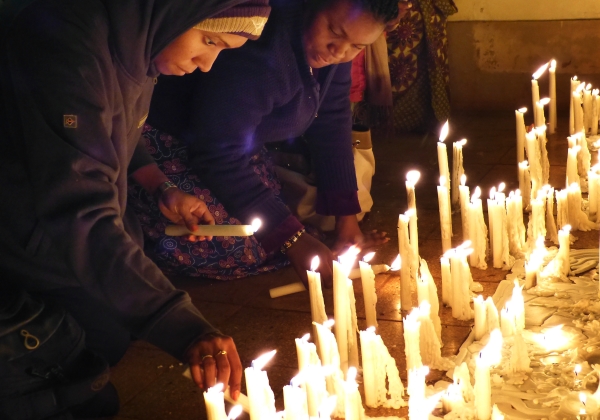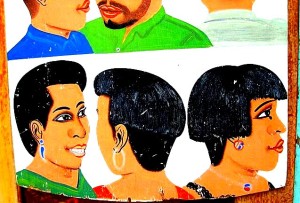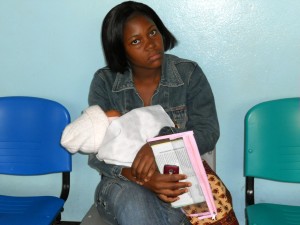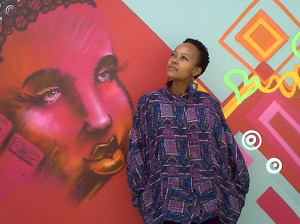We all know the power of words. Words have the power to heal and to destroy. You have probably experienced how words can either help or hurt you.
Since this is my last [...]]]>
We all know the power of words. Words have the power to heal and to destroy. You have probably experienced how words can either help or hurt you.
Since this is my last blog for Countdown to Zero, I want to use my quota of words to reflect upon this journey that began a year and a half ago, when Countdown offered me a regular space to pen down my thoughts and my stories.
I must say the journey has been bittersweet. Delving into the past brought some sad memories.
However, I can also say that blogging taught me to be self-reflective, to take a step back and look around, inside and back. This is an exercise we can easily forget due to all the busyness of life.

How can you make peace with everything and everyone if you have not made peace with yourself? Zandy Mqwathi reflects on her journey blogging for Countdown to Zero.
Since I don’t believe in coincidences, I choose to believe that there was a good reason why I, amidst the 6.3 million South Africans who are also living with HIV, was afforded such an opportunity.
Am I special?
Not really!
What may be special is that I have consciously opened myself up. I gathered my courage and shared my story with Countdown readers, a story which at times was neither happy nor pretty, but it is my story.
Criticism and doubts
At my church, some fellow believers who read my blogs misread my activism and my willingness to share my story and my HIV status as a lack of faith in the healing power of God.
I found myself constantly grappling with the dilemma, to tell or not to tell, to write certain things or not, because I have also publicly unveiled my love for God and my desire to live according to God’s tenets.
However, blogging evolved into something that I couldn’t have predicted. I realized that I can allow myself to be vulnerable and connect with my emotions and my past.
At times, I questioned my intentions of writing about that specific theme. Would the blog work or wouldn’t it? But things always worked out, from my very first blog on HIV positive teenagers and their challenges when dating.
I found myself glued to my laptop late at nights and over weekends, immersed in my quest to share my thoughts and stories with honesty and hoping to inspire and touch some one’s life in the process.
I hope that every time we need to deal with a difficult situation, we choose to take time to be still, to have a conversation with ourselves and our maker, and find the strength and peace we need.
May 2015 usher in a season of more connections among people and within ourselves.
Thanks, Countdown, for making this journey possible for me.
My poem
To close this blogging chapter in my life, I want to share this poem with you.
Sometimes words dishearten me
Leaving my spirit crushed
By the invincible layers that form me
How do you begin to make peace
with everything and everyone
when you still have not made peace with yourself?
At times life is complex
None of what is familiar still exists to me
Like the final curtain of a theatre stage
I am like a star that almost lost her twinkle
Truth is, Yes! I am fragile, vulnerable
just a girl trapped somewhere in between time
Can I cry now?
For all the times I chose to smile when it was hurting
For all the painful moments
that I managed to numb with distractive addictions
For all the losses
that helped me see the beauty in my life
Standing by the mirror, listening to my inner voice
reflecting back on my life and its catharsis.
After the dialogue, two young women approached me. One said that a good friend had recently disclosed her HIV positive status, and she wondered what to do, how to help.
[...]]]>After the dialogue, two young women approached me. One said that a good friend had recently disclosed her HIV positive status, and she wondered what to do, how to help.
This is what I told her, based on my experience as a young woman living with HIV.

What can you say and do when a friend confides she is HIV
positive? First, listen with an open heart, says our blogger Zandy Mqwathi, drawing from her own experience. Credit: Mercedes Sayagues
Three things to do:
1. Listen. It sounds simple but sometimes one just needs to be heard. There is tremendous healing power in telling our stories of battling with chronic disease or the death of a loved one. It might be the most powerful medicine on earth for the story-teller.
2. Allow the teller to be vulnerable. The gateway to intimacy is being vulnerable about your imperfections. Watch a great Ted Talk by Brené Brown on the power of vulnerability.
3. Offer support. You might be the only person that they can be open with. You can help by reminding them to take their pills on time or just offering to listen, anytime.
Three things to avoid:
1. Do not make a disappearing act, and don’t start treating them as if they have some special condition. We are the same person, with or without the virus.
2. Do not take on a counsellor’s role. Leave this to trained counsellors, who are able to deal with the pressures and emotional demands it involves. Taking on this responsibility might drain your energy and discourage you from helping others in the future.
3. Don’t go overboard. Do not offer to do things that may place a huge burden on you, such as taking your friend to the clinic regularly. This could make you resentful and spoil your friendship. If you make a commitment and it becomes too heavy, tell your friend. Be open and honest.
My experience of disclosing
My older cousin was among the first people I told about my HIV+. I was 23 years old, back in 2007, a new mother, diagnosed four months earlier, and she was in her mid-thirties.
I remember warmly how she made me feel I was the same person, with or without HIV. She made me understand that I did not have to act differently, that my status was an internal issue rather than external, and that I first had to deal with my emotional well-being.
If and when I accepted that I am HIV positive for the rest of my life, I would have won the battle against self stigma and self-discrimination.
This acceptance has been a continuous process in my life. And, yes, not everyone I disclosed to was as welcoming, non-judgemental or supportive as I would have wished. But my cousin set me on the right path with her wise words, and you can do the same for your friends.
And remember, kindness comes round. The more we give, the more we receive.
Zandi “Princess Zar” Mqwathi is a confident, innovative young leader and a former radio personality with a zeal and drive to use her craft and experiences to educate and empower other young women. ]]>Recently, I have. A few months ago, I mustered the courage to get a new, unique and chic hairstyle: a Mohawk, shaved sides and a gold braid [...]]]>
Recently, I have. A few months ago, I mustered the courage to get a new, unique and chic hairstyle: a Mohawk, shaved sides and a gold braid on top.
I never had a day without people either looking at me or talking about me. Fans stopped me to praise the look, ask for its name, or take selfies with me.

Zandy enjoys her gold Mohawk with Nigerian friend Kunle Adeniyi, at 4th Pan African Youth Leadership Conference in Dakar, Senegal.
I liked the attention. What my fans didn’t know is that I struggled to accept my new look. In fact, for a while, I hated it!
The first day I couldn’t stand to look at myself in the mirror. I felt ashamed for having the boldness to go blonde.
Only a dear friend, who had encouraged the new hairdo, knew how much I did not like it. In the public eye, I acted as if all was well, but inside I was dying to be normal again.
From hair to HIV
This struggle with my hair reminds me of my secret fight of almost eight years – dealing with internal stigma.
SA Positive Magazine describes internal stigma as the fear of judgment that people experience. It can have a bad effect on how people living with HIV view themselves and cope with their HIV status.
Internal stigma results from complex interactions between:
- social factors, like one’s culture, economic status, and community support networks
- contextual factors, such as circumstances in our life, power relations between family and friends
- self factors, including our state of mind, depression, anxiety, coping skills and resilience.
Internal stigma might be a common, hushed struggle for the six million South Africans who live with HIV, but it is often ignored by most activists and people living with HIV, especially those of us who are perceived as role models and pillars of strength. We often forget our own wellbeing.
It can be hard to cope when you are at class with 25 people who are quick to share how their auntie passed on because of AIDS (May her soul rest in peace).
It is hard when your peers speak brutally about what being HIV+ means and about their misconceptions, so often tainted by death.
Such moments make it hard for those who are living with HIV to come out to their friends, families and partners.
Finding help
If you wonder how I have been dealing with my private shame (internal stigma), let me tell you.
First, I had to get real with myself. Then I looked for psycho-social support. I attend therapy sessions every Tuesday. It gives me a space to speak honestly about how I feel about living with HIV.
Most people do not know that it is perfectly normal to go through a series of phases when dealing with HIV. It takes time to accept our HIV+ status. Of course, the process differs from person to person.
I never belonged to any support group, but recently I have been thinking of starting one at the university to create a safe space for people who might be going through the same struggle.
Acceptance has been the key in dealing with this phase of my life.
Just like with my new hairstyle: I had to accept my new look to start enjoying it, to embrace this golden Mohawk phase of my life. With HIV, I had to accept its presence in my body to embrace the HIV phase of my life.
]]>
Giggling shyly, one of the girls said: “Sometimes girls find themselves having sex without a condom because their older boyfriends [...]]]>

Transactional sex is a trap: Along with the goodies too often comes abuse, pregnancy and the chance of contracting HIV. Public Domain: Ruby Ran
Giggling shyly, one of the girls said: “Sometimes girls find themselves having sex without a condom because their older boyfriends can buy them stuff and they get afraid that he might leave them if they choose to say no.”
I literally felt sick in my stomach. This echoed my teenage years. After completing matric, I was in a relationship with a 36-year-old guy. At the time, it felt like a blessing to have met him just when I was going to college and he could help me financially.
I met Ike* through my older cousin, who believed in the finer things in life and that poverty could be strategically fought. She strongly believed that my beauty could and should be carefully used as my arsenal to escape poverty.
Our relationship moved fast. Before I knew it, I moved in with Ike. He was paying for college fees, buying me clothes and anything that I needed.
It wasn’t long before we started having unprotected sex. I remember one day, lying in bed thinking about that none of us knew each other’s HIV status. I only knew that he was a successful business man from Nigeria and that he loved me.
Well, for almost eight months it felt like he did, until one day he found an sms from a college male classmate, he freaked out and chased me out.
Powerful him, powerless me
That was the beginning of a big circle of conditional relationships. Most of the time, the older men I dated held more power, not only because they were older but because they were my providers. Negotiating safer sex would be like reclaiming my power and an older man will not tolerate a 19-year-old girl telling him what to do.
Women with little negotiating power to insist on using a condom with their partners are at higher risk of becoming pregnant and contracting sexually transmitted infections, including HIV.
Could these transactional relationships contribute to the rising prevalence rate of HIV among young women in South Africa?
Sad but true, most young women know how to prevent HIV. Something else is needed to stop this cycle of unwanted pregnancies and HIV infections. We must design interventions to educate about the risks of transactional sex and to understand why young women engage in it.
More and more South Africans are raised by single mothers. Perhaps this leads girls to look for their fathers in romantic and sexual relationships. At least, I was looking for a father figure in my circle of transactional relationships.
Transactional sex is a trap: you may get the goodies but you may also get abused, pregnant or infected with HIV.
Worse, you lose your self-worth, and it may take you years to claim it back. It is our self-worth that gives us courage to pursue our dreams.
In the week when I wrote this blog, South Africa had its fourth democratic election. Whether in the public duty of voting or in our private lives, the choice I make today will affect the quality of my life and of those around me in the future. Let’s keep this in mind every day of our wonderful lives.
*name changed
Zandi “Princess Zar” Mqwathi is a confident, innovative young leader and a former radio personality with a zeal and drive to use her craft and experiences to educate and empower other young women.
]]>
Wait! Is it human nature or just lack of discipline?
This happens to me in the area of … yes, weight gain! No amount of knowledge I acquire or books I read help me [...]]]>
Wait! Is it human nature or just lack of discipline?
This happens to me in the area of … yes, weight gain! No amount of knowledge I acquire or books I read help me to get off my rollercoaster ride of weight gain and loss.
Well, I see teenage pregnancy in South Africa in the same light. Having loads of information is not enough to change our behaviour.

Teenage pregnancy is not just an issue of reproductive health, but rooted in women’s gendered social environment.Credit Mercedes Sayangues
One would think that young people today have enough tools to avoid unwanted pregnancy: contraception is available and sexual health information is a fingertip or a cell phone away.
But many girls still fall pregnant before finishing high school. In 2011 alone, more than 51,000 school girls, mostly black and poor, gave birth in South Africa, according to the United Nations Population Fund. This not only endangers their education and their future but places a huge burden on their families.
The number of 51,000 pregnant school girls means that as many boys and men impregnated them. Hey, it takes two to tango.
Shoo!
Why does this happen? What perpetuates this cycle? My curiosity led me to research.
An insightful study from 2009 by researchers Jewkes, Morrell and Christofides aptly summed it up: “Teenage pregnancy is not just an issue of reproductive health and young women’s bodies but, rather, one of its causes and consequences, rooted in women’s gendered social environment.”
Sad but true. Our environment influences young women hugely. In some South African communities, young women are pressured to prove their fertility at a young age, and so they fall pregnant, simultaneously risking the dangers of sexually transmitted infections and HIV.
And if that’s not enough, they are often left to raise the babies alone because the father is ”unknown” – a term for saying that he is either married, or not ready to assume this responsibility, or does not want a child, or is still too young so he gets to continue with his education – while she (the expecting mother) likely drops out of school to care for the baby.
In addition, young women have to wrestle with the societal expectations that they must be conservative and passive.
We are also expected to prove our social status – to look a certain way, wear certain clothes, and be seen possessing certain material things. Dating someone older to provide these status symbols or necessities seems the easier route – no matter the cost.
However, experience has taught me otherwise: nothing is ever for mahala, meaning there are no freebies in life. What you do today will determine your future.
Check these figures reported last week about AIDS in South Africa:
- Among teenagers, girls have eight times the HIV infection rate than their male peers.
- Girls aged 15-19 are more likely than boys the same age to have sex, and sex with older men.
- Condom use has dropped significantly among young people.
To change this gut-wrenching reality, we must ask some hard questions:
- Can we honestly see progress in South Africa when so many girls still fall pregnant and/or contract HIV daily?
- Can we not take advantage of the booming social networks and other creative platforms to create safe spaces for dialogue around the real reasons why young black girls are falling pregnant today?
We should change our way of dealing with this sensitive social issue. Let us be less prescriptive about the young girls’ behaviours and meet them where they are.
Hearing their voices when messages and programmes are designed will help us address the real issues behind teenage pregnancy in South Africa.
To walk the talk, I am developing an interactive session for a group of high school students aged 14-17 in Braamfontein, Johannesburg. We use applied drama and theatre methods to build a platform for dialogue around teenage pregnancy. Will keep you posted!
Zandi “Princess Zar” Mqwathi is a confident, innovative young leader and a former radio personality with a zeal and drive to use her craft and experiences to educate and empower other young women.
]]>Strangely, our social media culture promotes and celebrates such behavior, where people always feel the need to share what they [...]]]>

Sometimes, for HIV positive people, opening their hearts means unlocking the secret of living with the virus. Photo Credit: Mercedes Sayagues/IPS
In a day and age where people celebrate everything exposed on open platforms, social networks and the streets, “show everything or show nothing at all” is what we live by.
Strangely, our social media culture promotes and celebrates such behavior, where people always feel the need to share what they are doing, did or plan to do. For both the young and the old, social media provides a convenient platform to tell it all: a new pregnancy, high blood pressure and arthritis, we know it all.
However, there is still one secret not so easy to share, one status that remains unknown and unposted in Facebook and Twitter … living with HIV.
Having been diagnosed with HIV eight years ago as a young woman, I have learned some lessons in the dating scene, especially the sensitive issue of sharing the secret or hiding it – just in case the relationship doesn’t work out.
Messed up
I wasn’t always this bold and open about my status. It was a huge challenge, especially taking my ARV pills in public.
I remember one of my boyfriends, Sipho (not his real name). We dated for two years and we were so into each other! I knew that revealing my status had to happen, but I did not have the courage to tell him. Nonetheless, I was sure that somehow we could make it despite my being HIV positive.
One day I was invited to talk on a national television program about living with HIV. There I was, openly sharing my life with HIV. Suddenly I realized that my boyfriend didn’t know I was HIV positive and I had asked him to watch the show. Basically, that’s how he found out. That’s messed up, right?
But, know this, disclosing is not easy. There is a high chance that someone might reject me, fearing this invisible virus. Others may see me as a ticking time bomb – not yet exploded but definitely going to.
After the TV show, Sipho and I continued dating for a few months but we never talked about HIV. He chose to ignore the whole “I am HIV positive” talk. I assumed that he was cool with it, only to realize over time that he wasn’t.
I guess I expected way too much from him: just because I had accepted my status, I expected him to do the same.
So you may ask, how do you disclose to a loved one, to a potential sexual partner? When you are diagnosed, no one tells you about what may happen. “You must tell someone, your family or a close friend who can support you”, is all you hear from the calm counselor.
Mmm! Tough one, hey!
So this is what I say, this is what I learned.
First, make peace with the fact that people are not the same. Some will be there for you. Others may just drop you and run away because “birds of a feather flock together”. Knowing this will keep you at ease with the impact of your disclosure.
Truth is, when it comes to dating, kissing, intimacy and sex, I think it should be done safely. This means being open about being HIV positive. This secret definitely ain’t sexy and it has to be exposed if you want to play safe!
mily or a close friend who can support you”, is all you hear from the calm counselor.
Mmm! Tough one, hey!
So this is what I say, this is what I learned.
First, make peace with the fact that people are not the same. Some will be there for you. Others may just drop you and run away because “birds of a feather flock together”. Knowing this will keep you at ease with the impact of your disclosure.
Truth is, when it comes to dating, kissing, intimacy and sex, I think it should be done safely. This means being open about being HIV positive. This secret definitely ain’t sexy and it has to be exposed if you want to play safe!
Zandi “Princess Zar” Mqwathi is a confident, innovative young leader and a former radio personality with a zeal and drive to use her craft and experiences to educate and empower other young women.
]]>But I am still upset. Want to know why? Well, here it goes!
Flashback to 19 May, 2006: my first day back home with my baby boy. In all my planning for [...]]]>
But I am still upset. Want to know why? Well, here it goes!
 Flashback to 19 May, 2006: my first day back home with my baby boy. In all my planning for motherhood, nothing — and I mean nothing — could have prepared me for those first days.
Flashback to 19 May, 2006: my first day back home with my baby boy. In all my planning for motherhood, nothing — and I mean nothing — could have prepared me for those first days.
Having a “not-to-do list” from the hospital did not help at all. Upon leaving the clinic, I was injected with fear by the nursing sister whom, till this day, I think was just trying to help.
That day my life changed! The sister asked if I understood my condition. And I said yes. I thought I understood what it meant to be HIV positive. I was ready to do whatever was necessary to keep my baby safe and healthy.
The sister explained that I could only bottle-feed my baby, that formula was very nutritious and would ensure that the baby stayed HIV negative, healthy and strong. With bottle feeding, there would be no need to give him other food or water.
My excitement turned into sadness when I got home. My breasts started leaking and my baby started crying. My breasts were full of rich, warm and nourishing breast milk and I was not able to give it to my baby.
At night, my pajamas were stained with breast milk. My mother (may her soul rest in peace) was confused as to why she couldn’t give her grandson any water or soft porridge, since she believed the baby cried from hunger.
I felt forced to disclose my status to my mother so she could understand the importance of exclusive bottle feeding.
Then I felt overwhelmed by the unnatural yet natural process that followed.
My mom advised me to put cabbage leaves on my nipples to stop the breast milk. There it was, the paradox – nature’s promise to bond with my baby while the most nutritious food is taken away from him using a traditional natural resource.
Thank God for the shift in the way HIV is perceived and managed. Today, WHO infant feeding guidelines recommend exclusive breastfeeding for the first six months, followed by continued breastfeeding with appropriate complementary foods, for women who are not infected. HIV positive mothers on ARVs can breastfeed exclusively for six months. Read more here.
It is so sad that many HIV positive mothers still think that, once diagnosed, you cannot breastfeed.
It has been seven years since that day. And yes, my baby – Loyiso Jerome Mqwathi – grew up HIV negative, strong and healthy.
I have found ways to make up for that lost bonding time, although I still feel I was robbed of a chance to bond with my baby. For this reason, this spilt milk is worth crying over.
Zandi “Princess Zar” Mqwathi is a confident, innovative young leader and a former radio personality with a zeal and drive to use her craft and experiences to educate and empower other young women.
]]>
Some things just go beautifully together
Like…
Peanut butter and jam sandwiches,
Chocolate chip cookies and milk,
Fish and chips,
Boys and girls. Or at least that’s what adolescent boys think and what adolescent [...]]]>
Some things just go beautifully together
Like…
Peanut butter and jam sandwiches,
Chocolate chip cookies and milk,
Fish and chips,
Boys and girls. Or at least that’s what adolescent boys think and what adolescent girls talk about too: Love.
This love, unfortunately, comes disguised as unprotected sex, transactional sex and inter-generational sex.
As I write this, I am reminded of my very first “crush” in high school, how excited I used to get just to see him and have him pass me by like blowing wind. Perhaps you too can relate to this crazy, wild and beautiful teenage phase – most of us, if not all, have once wished to be noticed by that boy or girl at school regardless of our race, class and status.
Truth is….
There is another aspect of the teenager’s life that most of us are not even aware of, maybe because we have never experienced it or we aren’t paying enough attention. Statistics show that:
- More than two million adolescents aged 10 to 19 years are living with HIV, marking a 33 percent rise since 2001. (World Health Organization, 2013)
- Southern Africa is home to 1.2 million HIV-infected adolescents whose long-term health depends on their strict adherence to antiretroviral therapy. (UNICEF, 2013)
In communities where dating or relationships are not frankly discussed amidst young people, my experience has taught me there is a high chance that young people will engage in sexual activities to discover the fuss behind “If you fall pregnant, I am going to chase you out” that our mothers used to yell at us to scare us from even allowing boys to touch or kiss us.
Those words failed dismally. In fact, they served as a catalyst to our “first times”. And, as they say, curiosity killed a cat.
So what happens to HIV positive adolescents when they start developing sexual feelings or having sex? To gain more insight, I had a chat with Tshepo, a 22-year-old young man who was born with HIV.
Our conversation was centered on relationships and HIV. Although Tshepo is new to the dating scene, for him the most important aspect of a relationship is trust
I think we can all learn a lot from that. I mean, taking time to know someone way before the first kiss and then oh my! make it or break it moment.
Disclosing is essential, he said with confidence. In my mind, I asked myself, well, Tshepo, what about rejection? It was as if he could read my mind! He said: “One must never risk infecting a partner regardless of what the outcome might be afterwards”.
How many of us do that? This is a tough step that needs to be taken way before we go between the sheets. Since it is already difficult for most people to get tested, let’s switch on the light bulb of information and start making informed decisions. Go out…..Wait…..Give it time…..And give it time.

Zandi “Princess Zar” Mqwathi
Zandi “Princess Zar” Mqwathi is a confident, innovative young leader and former radio personality with a drive to use her craft and experiences to educate and empower other young women.
References
]]>

